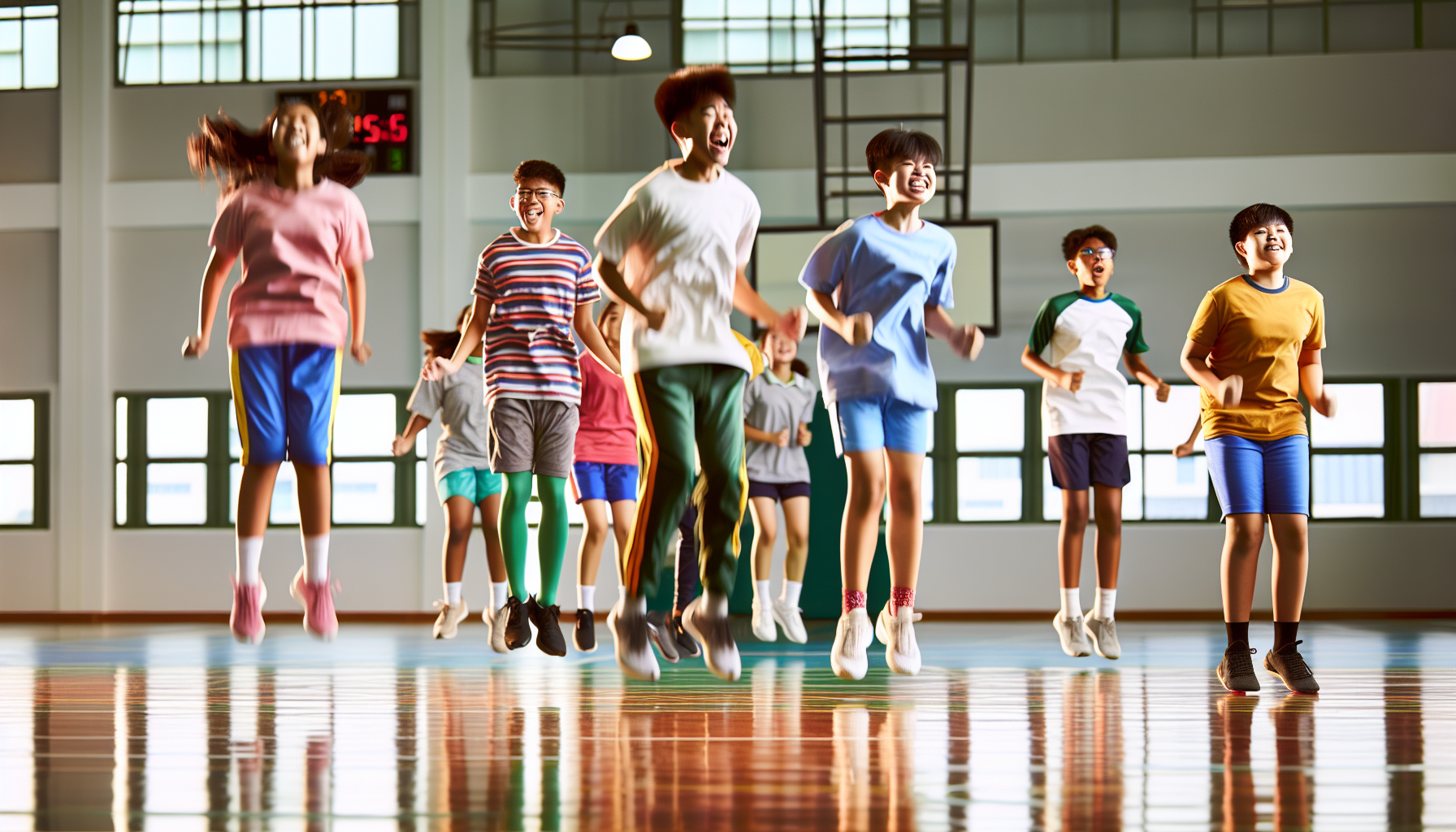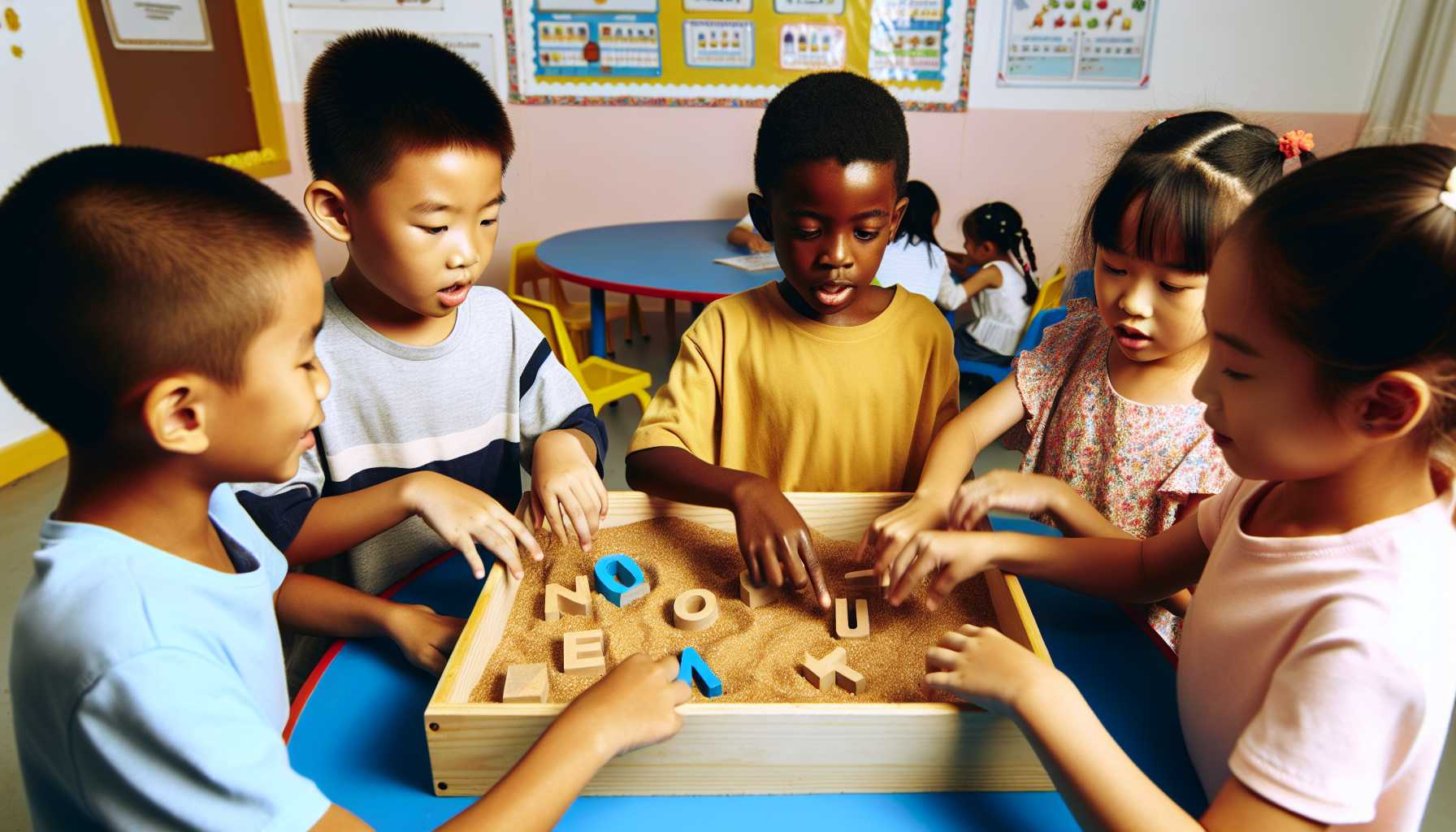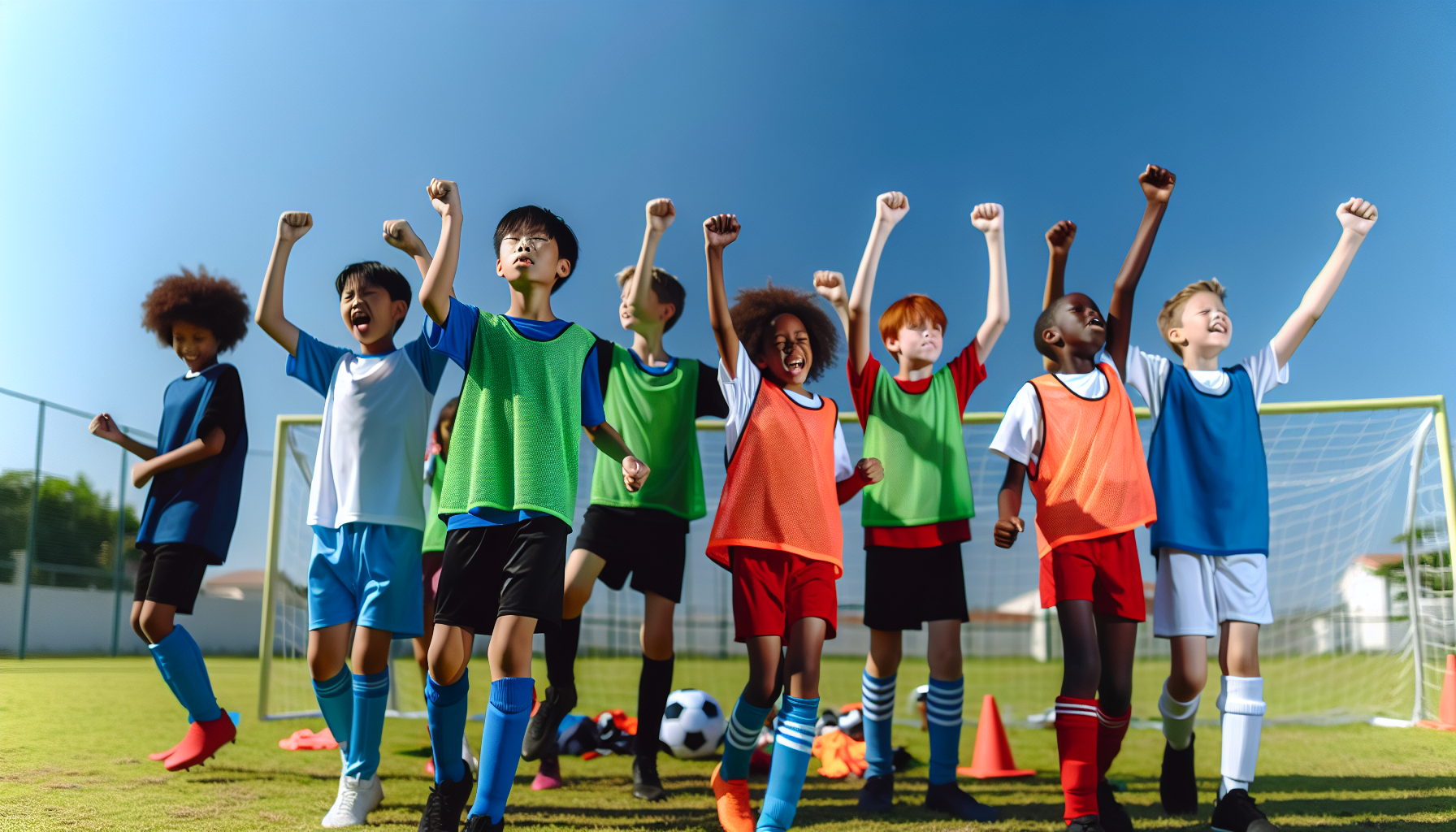When it comes to picking sport for preschoolers, simplicity and safety are key. Our guide offers direct insights into sporting activities tailored to the unique developmental needs of toddlers. Expect practical advice on facilitating your child’s first steps into sports that promote motor skills, social interaction, and plenty of smiles. Explore our recommendations to make those early kicks and throws both fun and formative.
Table of Contents
ToggleKey Takeaways
- Introduce your preschooler to a variety of fun, age-appropriate sports to build foundational motor skills, instill a love for fitness, and ensure personal development outweighs competition.
- Ensure your child’s early sports experiences are positive by gradually introducing structured activities, emphasizing play, and incorporating regular movement into their daily routines.
- Support your child’s physical, social, and emotional development through sports by choosing safe equipment, encouraging teamwork, and nurturing a lifelong love for active play.
Choosing the Right Sport for Preschoolers
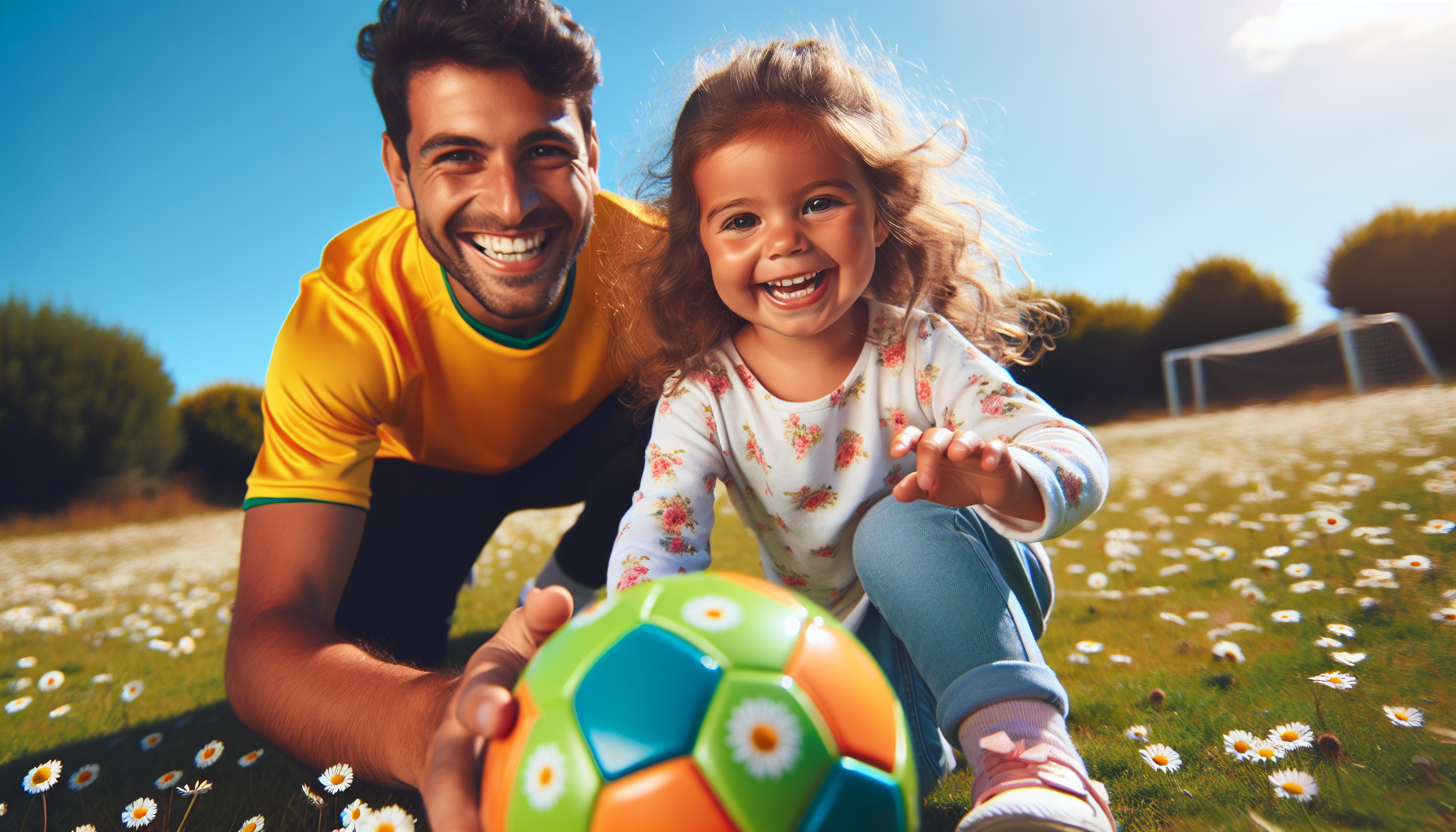
Choosing the suitable sport for your preschooler opens the door to a world of adventure. This decision can significantly impact their growth, as physical activity is a crucial part of their developmental roadmap. As parents, it’s our role to guide them towards sports that are age-appropriate and align with their personality. This not only helps them develop motor skills but also sets them up for a lifetime of fitness. But remember, the emphasis should always be on enjoyment and fun, rather than competition. Some age-appropriate sports for preschoolers include:
- Soccer
- Gymnastics
- Swimming
- T-ball
- Dance
- Martial arts
Encourage your child to try different best sports and see which one they enjoy the most.
Motor Skills at Play
Are you aware that play is vital to a preschooler’s development? Engaging in a diverse range of activities helps them develop both gross and fine motor skills. Activities like mini basketball run, jump, and handle the ball, enhancing their gross motor skills, while sports like skating improve patience, reflex coordination, agility, muscle strength, cardiovascular fitness, and balance.
It’s like a fun-filled training ground, preparing them for life’s adventures!
Fun Over Competition
Sports extend beyond the binary of winning or losing. In fact, for preschoolers, the focus should be on:
- Fun
- Skill development
- Fostering a love for sports
- Achieving personal goals
When younger kids feel the joy of achieving personal goals in sports, they are motivated to participate more.
Supporting your child’s evolving interests without pressuring them to win helps foster a positive attitude towards sports.
Age-Appropriate Activities
Picking an age-appropriate sport can be likened to selecting a suitable book for storytime. Activities like swimming, soccer, gymnastics, and dance are excellent for kids ages, as they help them develop a variety of skills in a fun and engaging way. Unstructured free play activities, including:
- running
- dancing
- tumbling
- throwing
- catching
- swimming
are also beneficial for their growth and motor skills.
Variety in sports can prevent early burnout and injuries, so remember to mix it up!
Getting Started with Preschool Sports
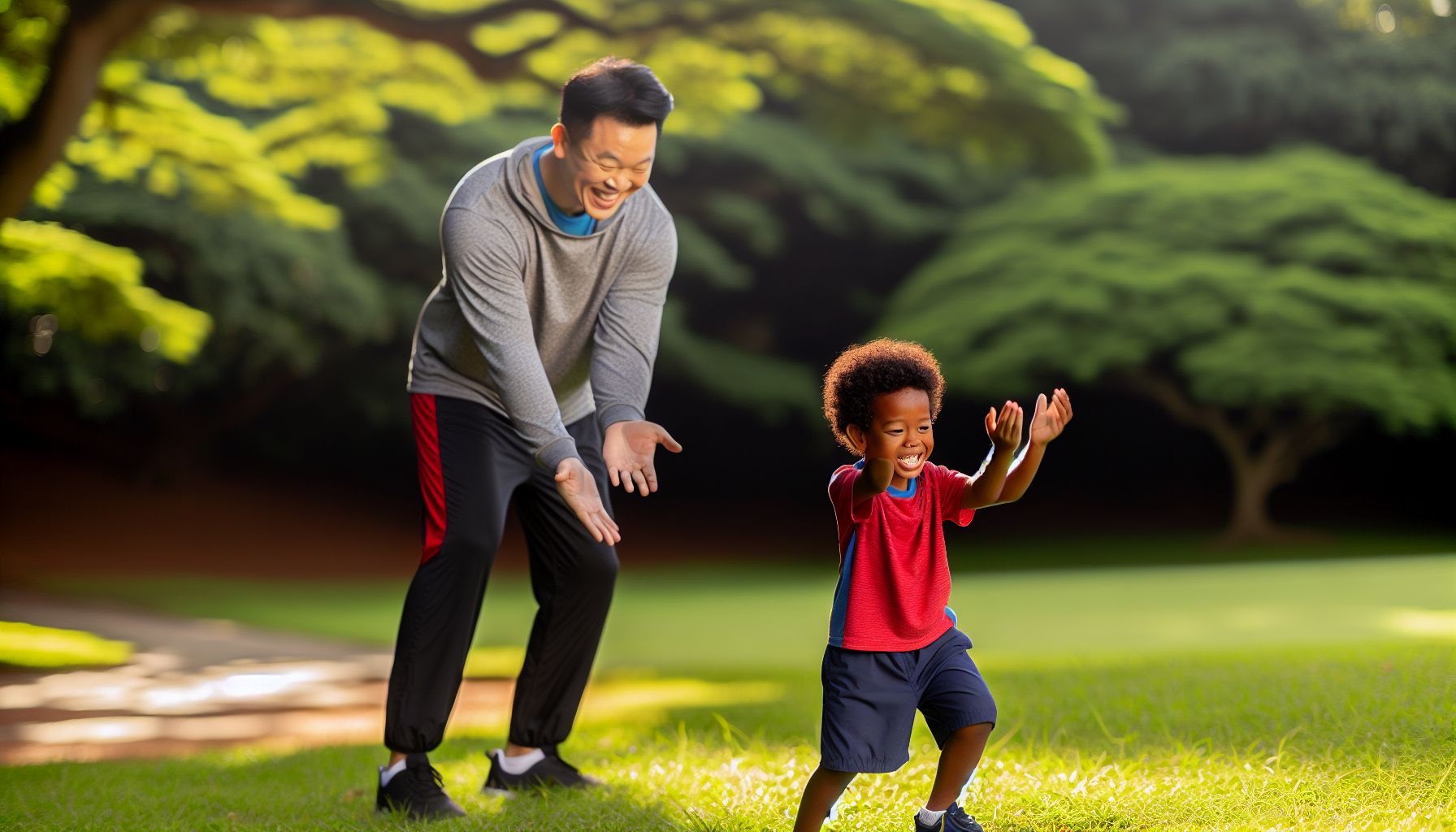
After selecting the appropriate sport, the next step is to introduce preschoolers to the sport in an engaging manner. The secret is to create a positive atmosphere and make sports fun for them.
Toys that encourage movement, like tricycles, can stimulate both their physical and mental development.
Ease Into Activity
Consider the introduction of your child to sports as synonymous with teaching them how to swim. It’s best to start in the shallow end and gradually go deeper. The same holds for sports. Begin with mini-games that they enjoy and gradually introduce them to the concepts of various sports.
Activities that parents and preschoolers can enjoy together, like dancing and playful movement games, encourages making physical activity a part of the family routine.
The Role of Play
Children communicate and learn best through play. It’s a fundamental way through which they interact with the world, learn vital concepts such as teamwork, friendship, and enjoyment. Turning sports into fun mini-games helps them associate sports with enjoyment and encourages future participation.
Therefore, it’s important to align sports activities with the way a preschooler’s mind works by keeping them fun and entertaining, which ensures that fun remains the top priority for the child.
Encouraging Regular Movement
As with reading a book or brushing their teeth, regular physical activity should be incorporated into your preschooler’s daily routine. Preschoolers should have at least 30 minutes of structured physical activity and at least 60 minutes of unstructured active play each day.
Indoor ball games for small spaces and mini basketball sets can be a great start to ensure they stay active, even when indoors.
Popular Sports for the Youngest Athletes
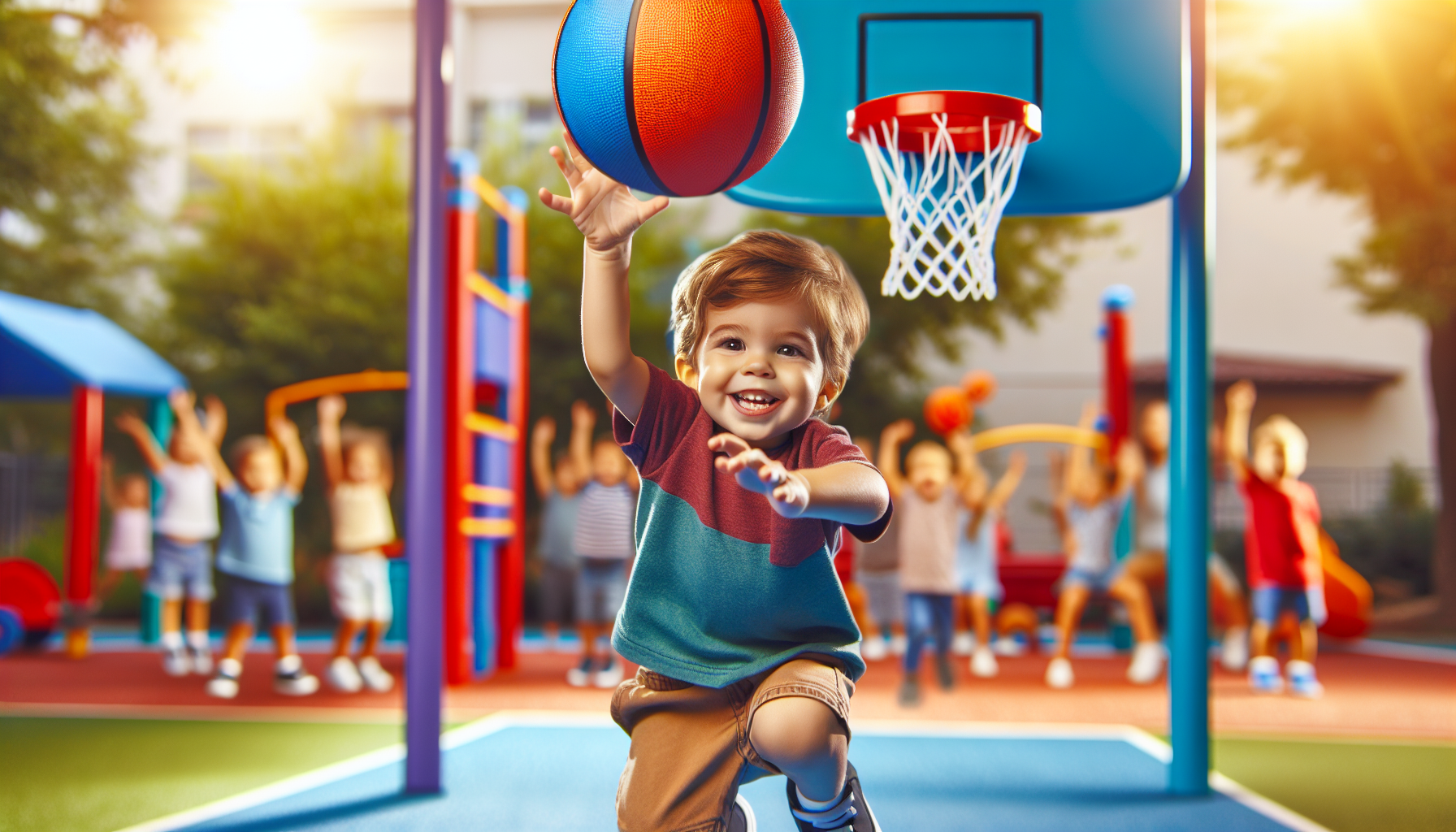
Having learned how to introduce preschoolers to sports, let’s now delve into some popular sports ideal for young children. From soccer to gymnastics to dance, there’s a plethora of activities that can ignite their excitement and enthusiasm for sports.
Preschool Soccer
Soccer in sports is akin to ABCs in language, providing an excellent starting point. Kicking around soft balls can be a safe and friendly way to introduce preschoolers to soccer.
Programs like Lil’ Kickers blend soccer instruction with a fun, energetic environment that keeps kids engaged and excited about learning.
Mini Basketball
Similar to your preschooler, mini basketball is diminutive in size but mighty in impact! With toy basketball hoops and lightweight balls, mini basketball can be a fun and engaging sport for your preschooler. It helps them learn how to throw, dribble, and practice passing, getting them accustomed to the sport in a fun, less intimidating way.
T-Ball Fun
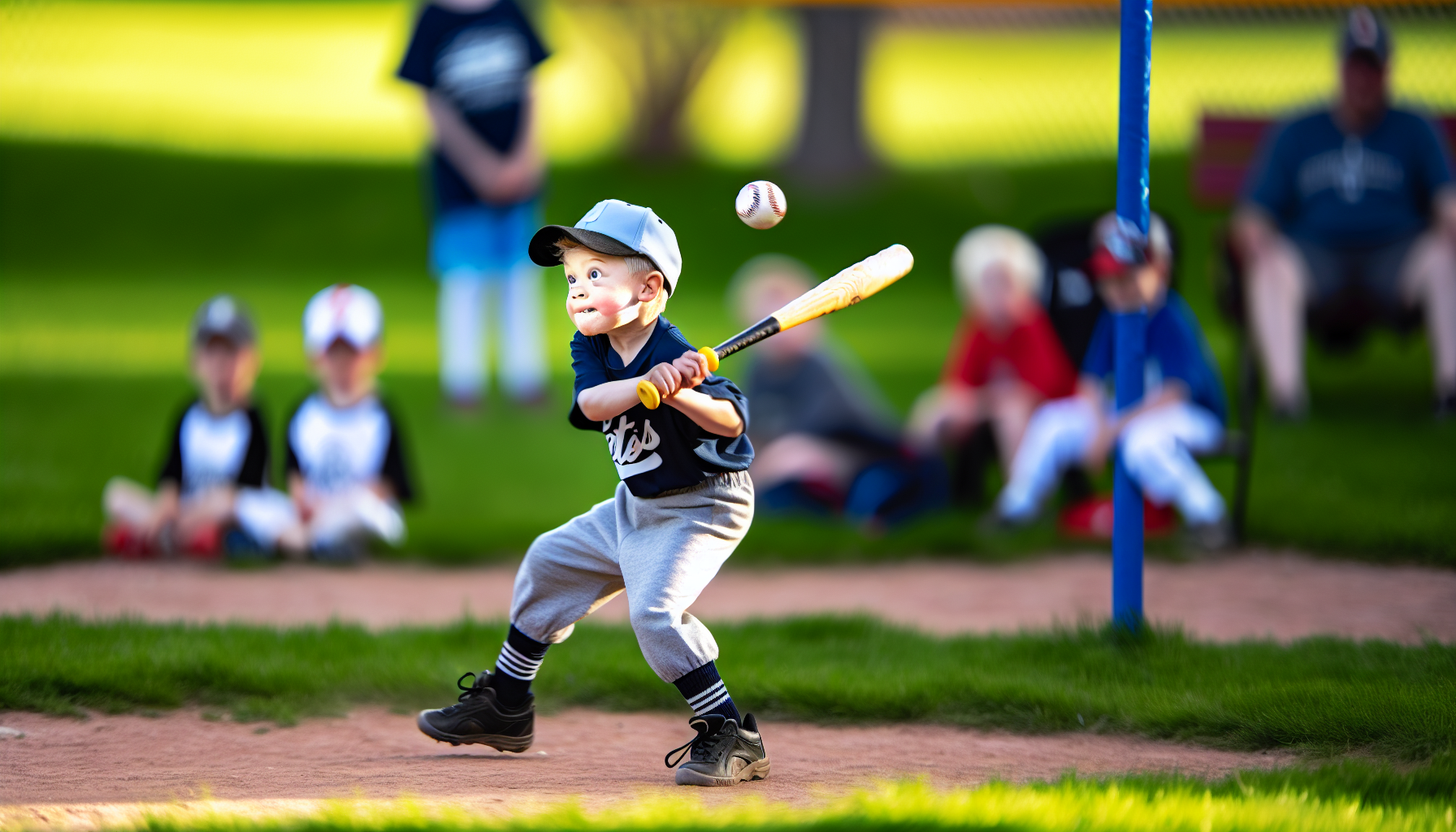
T-ball is another sport that fits perfectly in the preschooler’s fun zone. It’s a simplified version of youth baseball that fosters coordination and batting skills by teaching them how to hit a stationary ball off a tee.
It’s all about keeping it simple and fun!
Enhancing Social Skills Through Team Sports
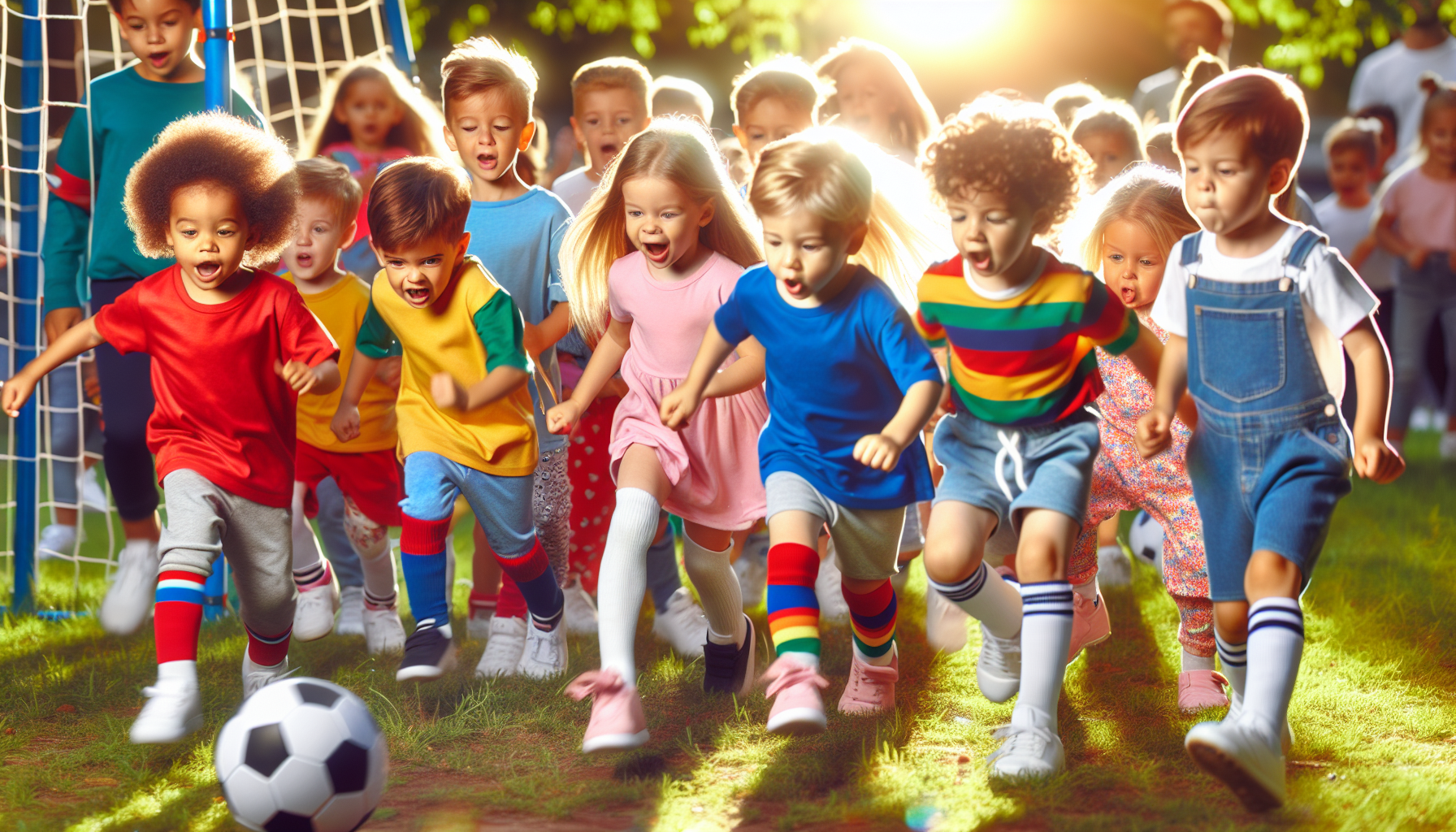
Sports not only promote physical fitness but also serve as a platform for social skill development. Being part of a team, preschoolers learn to cooperate, share, take turns, and make friends while participating in sports programs, which involve playing sports.
Learning to Share and Take Turns
From passing the ball in soccer to waiting for their turn to bat in T-ball, sports activities provide practical experiences in sharing and taking turns. It’s a great way to teach them patience and the importance of sharing, essential skills for team play.
Following Directions and Listening
Sports are also a classroom for discipline. Whether it’s following the coach’s instructions or abiding by the rules of the game, sports help preschoolers improve their focus, concentration, and ability to follow rules. This helps them not only on the field but also in their everyday lives.
Making New Friends
The friendships formed on the playground often last a lifetime. Team sports provide preschoolers with opportunities to engage in cooperative activities that are favorable for making new friends. These shared experiences and time spent together can foster mutual acceptance and enhance their social development.
Health Benefits of Early Physical Activity
Physical activity extends beyond merely being fun and games, especially for physically active adults. It has profound health benefits that can last a lifetime. Regular participation in sports contributes to improved cardiovascular structure and function, including lower blood pressure and reduced arterial thickness.
Plus, it helps in preventing childhood obesity, fostering long-term health and well-being.
Building Healthy Habits
Youth sports provide a fun way to instill healthy habits from a young age. Motor skill development in early childhood is foundational to physical literacy, which carries into adulthood and contributes to successful independent living and academic performance. Plus, children who participate in organised sports tend to exhibit:
- Better social skills
- Academic achievements
- Physical health
- Emotional well-being
Nutritional Considerations
Similar to how a car needs fuel to run, our bodies require appropriate nutrition for optimal performance. Carbohydrates for energy, proteins for muscle repair and growth, and fats for long-lasting energy are all crucial for your child’s sports performance and recovery.
Remember to keep your child hydrated and ensure they get the right nutrition to support their growth and activity.
Ensuring Safety During Sports Play
Even though sports are incredibly enjoyable, safety should always be prioritized. From selecting the right equipment to knowing when to seek medical help, keeping our children safe during sports play is paramount.
Selecting Proper Equipment
Choosing age-appropriate, high-quality sports equipment is essential for your child’s safety. Some important items to include in your child’s sports kit are:
- Helmets
- Elbow or knee pads
- Special sports shoes
- Protective gloves
Make sure to invest in these items to ensure your child is protected while participating in sports.
Supervision and Safe Environments
Supervision is key when it comes to safety. Whether it’s indoor or outdoor play, it’s essential for adults to actively monitor preschoolers at all times to ensure safety.
When to Seek Medical Help
Despite the best precautions, accidents can still occur. It’s important to recognize when to seek medical help.
If an injury does not improve with rest and appropriate measures within a day or two, it’s time to seek medical attention.
Cultivating Life Skills Through Sports
In addition to physical and social skills, sports significantly contribute to the development of life skills. They teach children about:
- hard work
- dedication
- setting goals
- handling setbacks constructively
These are the seeds for future leadership skills.
Nurturing the Love for Sports
As parents, our desire is for our children to find joy in their activities. Encouragement from parents, attending games, and allowing children to select their sports fosters a positive attitude towards sports. Remember to keep sports fun and focus on effort, not just winning, to help them develop a lasting love for sports.
Parental Involvement in preschooler Sports
Contemporary parenting entails active participation in your child’s journey. Whether it’s kicking a soccer ball or playing catch, engaging in sports with your preschooler can foster a love for sports and demonstrate the joy of physical activity.
Summary
In summary, sports play a significant role in a preschooler’s life. They contribute to their physical health, social skills, and overall well-being. By choosing the right sport, ensuring safety, and remaining involved in their journey, we can help our children develop a lifelong love for sports.
Frequently Asked Questions
What is the best sport to put a 3 year old in?
Swimming is considered one of the best sports for three-year-olds, as it is fun, helps with coordination, and promotes flexibility. It’s a great way to introduce your child to physical activity and ensure they enjoy a pool!
What activities should a 2 year old be doing?
Encourage your 2-year-old to play with sand toys, simple puzzles, and explore new things to stimulate curiosity and learning in a fun way. Get them involved in activities that engage their senses and creativity.
What are some age-appropriate sports for preschoolers?
Preschoolers can enjoy sports like swimming, soccer, gymnastics, and dance. Unstructured activities like running, dancing, and tumbling are also great for them to stay active and healthy.
How can sports help in social development?
Sports can help in social development by providing opportunities for cooperation and teaching important skills like sharing and following instructions. These activities also foster the making of new friends.
What are the health benefits of early physical activity?
Early physical activity has numerous health benefits, including improved cardiovascular function, lower blood pressure, and reduced risk of childhood obesity. Stay active and enjoy a healthier life!
Share this post: on Twitter on Facebook on Google+

